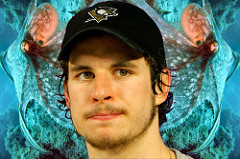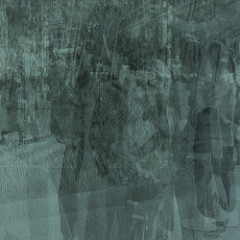
Announcement: I’m proposing one final video chat in a couple of weeks (8/3 9pm EDT). That gives everyone a chance to catch up.
This is our sixth and penultimate week reading through The War on Science; next week I’ll review the book as a whole. We’re covering the last three chapters this week; the last chapter is too brief for its own post. (Previous posts: Ch 1-2, Ch 3-4, Ch 5-6, Ch 7-8, Ch 9-10) This is the “what then shall we do?” section. As with the rest of the book, it is sweeping and ambitious in scope. The solutions remind me of my original question about the target audience; a number of them are curiously narrow.
Tragedy of the Commons
Chapter 11 picks up from Chapter 10 and focuses primarily on climate change. Otto frames the issue in terms of the tragedy of the commons, the idea that it is possible for everyone to act out of a short-term, local sense of self-interest and nevertheless harm themselves and everyone else in the long run by exhausting or failing to maintain a limited common resource. Framing climate stewardship in this way makes a lot of sense, and I appreciated his explanation of how regulation and caretaking can increase freedom rather than solely restricting it. Of course, the idea of boundaries providing freedom is not a new concept for Christians; maybe old books have some wisdom after all. I also thought his economic proposals were persuasive, if for no other reason than economics helped lead us where we are so it makes sense we’ll need a shift in economics to lead us out.
At the same time, I was surprised that the discussion began and ended with macroeconomics and government policy. Where were the solutions that individuals could implement for themselves? After all, the science shows that people get overwhelmed and tune out when problems like climate change are presented solely as large-scale problems with large-scale solutions. People need concrete actions they can take locally and immediately. Yet I came away from the chapter with the impression climate change is a mess that governments and big corporations made and that governments and big corporations have to fix. Such a macro perspective feels strangely authoritarian, maybe not in the totalitarian sense Otto keeps referring to, but at least in a top-down sense as opposed to solutions emerging from the bottom-up through individual citizens’ actions. It also creates the impression Otto imagines his primary audience to be people already in positions of influence and leadership.
Battle Plans

 )
)Top-down solutions aimed at leaders is the theme of Chapter 12, the most practical and specific in terms of calls to action. Even with a widened focus on science engagement generally, I imagine most readers will find themselves left out of the solution. Otto offers 14 “battle plans” and by my count 4 of them offer opportunities for the general public. The first is a catch-all for activism, listing a variety of organizations one could support. The other three–plan 3, supporting Otto’s ScienceDebate movement; plan 11, get your politicians to sign a science pledge; and plan 14, vote for proscience candidates–are all variations on getting the right elected officials in place to do the actual work. Granted the book is focused on politics and the need for science to inform policy, but surely there is more to political engagement than single-issue voting.
The remaining 10 plans are all pitched at the folks at the top of their fields. Granted, a variety of fields are mentioned, from teachers to clergy to journalists and of course scientists, but many people are not in any of those fields and even fewer are leaders. I was glad to see a plan which included churches positively, but there are far more people in the pews than in the pulpit; where was the plan for them? Yes, teachers have an important role to play in education, yet their are probably 25-50 parents represented in each classroom for every teacher. Sure, journalists and editors can improve how science is reported on, but they need the financial support of subscribers who might have appreciated a list of publications currently worthy of their dollars. Strategically a focus on the top may get the most bang for the buck, but it does nothing to dispel a sense that science is a matter for the elite. Likewise, the periodic insistence that we do away with multi-stakeholder committees in favor of just having the experts tell us what to do at least has an appearance of elitism and authoritarianism. Such an approach may very well be more productive at times and warranted by a view of reality which includes objective truth. But I don’t see where it helps to persuade those already skeptical of the scientific community that their participation is valued.
Intangibles
Finally, Otto waxes poetic about the beauty and artfulness of science and/or the subject of scientific inquiry. On the one hand, I appreciate a view of education which does not reduce it to job-skill training and a view of science which is not beholden to immediate application. On the other hand, I felt the assertion that our “primary asset” is “the quality of time on Earth” which mainly depends on “intangibles” was undermotivated by everything that preceded it. After so much emphasis on quantitative, empirical science as the source of knowledge, now suddenly the most important things in life are unquantifiable and nonphysical? Just a few pages earlier we were asked rather leadingly “When [religion and science] are in conflict, which do we believe: the interpretations of reality made by peasants and translated from an ancient language in an old book, or the evidence we can see, measure, and confirm with our own eyes?”

 )
)As he is wrapping up, Otto has some rather optimistic comments about how religion and science can fruitfully interact. But then he’ll throw in a sentence like that which not only undermines any inroads he might make with religious readers, it really runs counter to so much of what he’s been arguing for. Why is it that people in the past recorded “interpretations of reality” while we “see, measure, and confirm with our own eyes?” Surely they were also using their own eyes, and surely we are interpreting reality. And what does it matter if a book is old? Considering that those old books provided a foundation for the development of science, and that Otto has put so much work into rediscovering sentiments from those books, maybe we should actually acknowledge them as classics which have stood the test of time. Not to mention that a core principle of anti-authoritarian democracy is that an idea’s merit should be independent of its source. Which brings us to the heavily loaded word “peasants.” First of all, the objective reality of history tells us this description isn’t accurate. Moses, David, Solomon, Ezra, Daniel and Paul certainly don’t fit that description. And arguably none of them do, if you consider “peasant” to refer specifically to the feudal system of the Middle Ages. Second, it seems rather reductive to define people by their economic status, especially when individuals have minimal control over that status. And third, why would it even matter if it were true, since again science is supposed to be democratic and evaluate ideas on their truthfulness not their source.
Of course, that’s just one sentence. We can extend Otto grace by not dismissing other worthwhile comments based on one misjudged statement. Perhaps I am not being fair to dissect one sentence so thoroughly. Mostly, I think it highlights the need for more bridge-building. Ultimately, I think Otto is writing for a scientific audience about religion and philosophy (and other topics), which has created a conversation that is not terribly welcoming to others. Perhaps for lack of personal experience, Otto may not even realize just how unwelcoming it is at points. Thus, we need folks who can speak to and with both audiences and who appreciate how much overlap there is of people who practice both science and religion.
Discussion
- Is it really the case that “democracy is not truly democratic unless it’s secular?” Assuming actually fair and free elections, on what basis do we tell another citizenry they elected the wrong government?
- On holding science debates in classrooms: “This way, all students have to research both sides of the debate. In so doing, they quickly learn the difference between the knowledge-based scientific arguments against the antiscience proposition, and the non-scientific, emotionally persuasive rhetorical arguments in favor.” Isn’t this just the deficit model? Isn’t the whole problem that researching both sides of these issues leaves people confused and uncertain because it is not obvious which arguments are evidential and which are rhetorical?
- How do we write or speak for the public when our experience is necessarily limited and there’s an asymmetry where one misstep will stand out more than multiple agreeable statements?
Andy has worn many hats in his life. He knows this is a dreadfully clichéd notion, but since it is also literally true he uses it anyway. Among his current metaphorical hats: husband of one wife, father of two teenagers, reader of science fiction and science fact, enthusiast of contemporary symphonic music, and chief science officer. Previous metaphorical hats include: comp bio postdoc, molecular biology grad student, InterVarsity chapter president (that one came with a literal hat), music store clerk, house painter, and mosquito trapper. Among his more unique literal hats: British bobby, captain’s hats (of varying levels of authenticity) of several specific vessels, a deerstalker from 221B Baker St, and a railroad engineer’s cap. His monthly Science in Review is drawn from his weekly Science Corner posts — Wednesdays, 8am (Eastern) on the Emerging Scholars Network Blog. His book Faith across the Multiverse is available from Hendrickson.

Leave a Reply